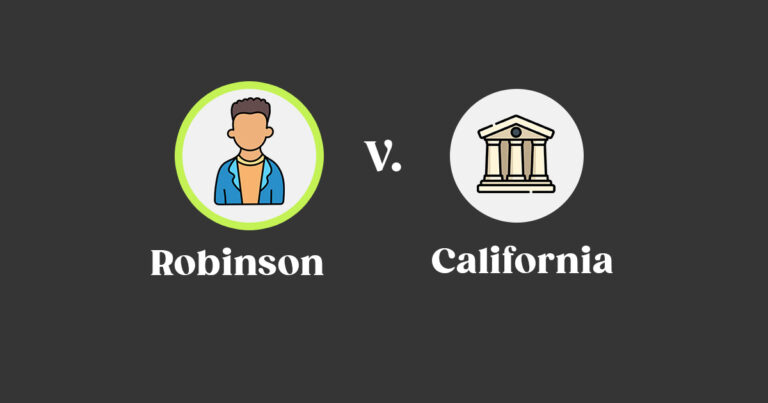Facts of the Case
In 1962, Los Angeles police officers observed Lawrence Robinson’s arms, noting scabs and needle marks they attributed to narcotics use. Robinson denied using drugs, testifying that the marks stemmed from an allergic reaction during military service. At trial, the prosecution relied on officers’ testimony and photographs of his arms. A police expert opined the marks resulted from non-sterile injections, though Robinson exhibited no withdrawal symptoms or immediate drug influence.
The trial court instructed jurors that addiction—a ‘status or condition’—was punishable regardless of recent drug use. The jury convicted Robinson under a general verdict, allowing guilt based solely on his alleged ‘status’ as an addict. California courts upheld the conviction, rejecting constitutional challenges. The U.S. Supreme Court granted certiorari to address whether criminalizing addiction violated the Eighth Amendment.
Procedural History
- Robinson was convicted in the Los Angeles Municipal Court under § 11721 for being ‘addicted to narcotics.’
- The Appellate Department of the Los Angeles County Superior Court affirmed, citing prior decisions upholding the statute’s constitutionality.
- Robinson sought habeas corpus relief in California appellate courts, which was denied.
- The U.S. Supreme Court granted certiorari to resolve the constitutional question under the Eighth and Fourteenth Amendments.
I.R.A.C. Format
Issue
Whether a state law criminalizing the status of narcotic addiction, rather than specific acts of drug use or possession, violates the Eighth Amendment’s prohibition of cruel and unusual punishment as applied through the Fourteenth Amendment.
Rule of Law
The Eighth Amendment, incorporated against the states via the Fourteenth Amendment, prohibits inflicting cruel and unusual punishment. Punishing a person for a status (e.g., addiction) rather than a voluntary act violates this principle.
Reasoning and Analysis
The Court distinguished between punishing criminal conduct (e.g., drug use) and criminalizing a status like addiction. Addiction, akin to illness, is not a voluntary choice. Historical precedents showed that punishing involuntary conditions (e.g., mental illness) is unconstitutional. California’s statute allowed imprisonment solely for being an addict, even without evidence of recent drug use or antisocial behavior.
The Court analogized this to criminalizing having a cold, emphasizing that imprisonment for a medical condition is inherently cruel. While states may regulate narcotics through criminal laws targeting specific acts or compulsory treatment programs, § 11721 imposed punishment without addressing conduct or offering rehabilitation.
Conclusion
The Supreme Court reversed Robinson’s conviction, holding that California’s statute violated the Eighth Amendment. Criminalizing the status of addiction constitutes cruel and unusual punishment because it penalizes a medical condition rather than voluntary conduct.
Concurring Opinions
Justice Douglas emphasized addiction as a disease requiring treatment, not punishment. Justice Harlan concurred, noting the statute criminalized a ‘compelling propensity’ to use drugs without proof of recent acts.
Dissenting Opinions
Justice Clark dissented, arguing the statute aimed to treat early-stage addiction through confinement. Justice White contended the law targeted habitual drug use, not mere status, and should be upheld as a valid deterrent.
Relevant FAQs of this case
Why is the 8th Amendment controversial?
The Eighth Amendment to the United States Constitution prohibits certain punishments, but the cruel and unusual clause remains controversial. Due to the Eighth Amendment, it is illegal to punish a person by torturing them, burning them alive, quartering them, or even requiring them to renounce their U.S. citizenship. The 8th Amendment is controversial because the terms “cruel and unusual” have been interpreted as subjective terms, and the courts’ interpretations of the amendment have been divided along ideological lines.
Why it would've been a cruel punishment for Robinson?
In certain ways, California law was different. According to Stewart says it’s the same as when they have mental illness, or common cold. Wouldn’t it be cruel to put someone in jail for being mentally ill?
Is being a drug addict a crime?
If a person has not recently committed any drug-related crimes, it is unconstitutional for the state to penalize them for their addiction, because it is a condition and not an action.
References
Was this case brief helpful?
